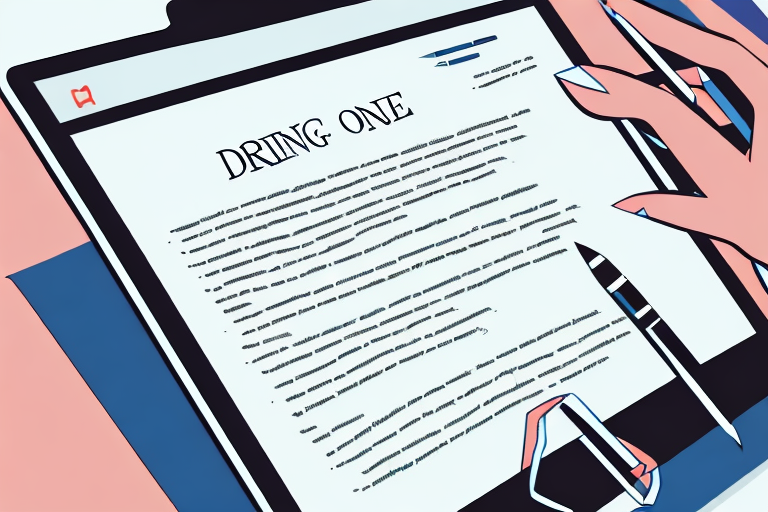In today’s digital age, technology has revolutionized many aspects of our lives, including estate planning. With the rise of online platforms and digital solutions, people are now able to draft their wills conveniently and securely from the comfort of their own homes. This shift towards digital wills has brought numerous benefits that cannot be overlooked. In this article, we will explore the concept of digital wills, the role of technology in estate planning, and the advantages of drafting wills online.
Understanding the Concept of Digital Wills
Before delving into the benefits, it is important to understand what exactly a digital will entails. A digital will, as the name suggests, is a legally binding document that outlines how a person’s digital assets and online accounts should be managed or distributed after their death. It covers everything from social media accounts and email accounts to online banking and cryptocurrency investments. By creating a digital will, individuals can ensure that their wishes regarding these digital assets are carried out precisely.
However, the concept of digital wills goes beyond just the technicalities. It represents a shift in how we perceive and handle our digital lives. In today’s digital age, our online presence has become an integral part of who we are. Our social media accounts hold memories, our email accounts contain personal correspondences, and our online banking and investment accounts hold financial assets. Without a digital will, these important aspects of our lives may be left unattended or even mishandled after our passing.

What is a Digital Will?
A digital will serves as a comprehensive record of a person’s digital life and the instructions they want to be followed upon their passing. It can include details regarding the transfer of ownership or control of online platforms, digital files, and even sentimental documents stored in the cloud or on personal devices. In a world where our lives are increasingly intertwined with technology, having a digital will becomes crucial in managing and preserving our digital legacies.
Imagine a scenario where a person has an extensive collection of digital photographs stored on various cloud platforms. These photographs hold immense sentimental value and are cherished by loved ones. Without a digital will, there is a risk that these precious memories may be lost or inaccessible. However, with a digital will in place, the person can specify who should have access to these photographs and how they should be preserved, ensuring that future generations can continue to enjoy and cherish them. Learn more about understanding the section 173 agreement terms in property law.
How Does a Digital Will Work?
Creating a digital will typically involves using an online platform that specializes in estate planning. These platforms provide users with intuitive tools and templates to guide them through the process. Users can input their information, specify beneficiaries, assign digital guardians, and include specific instructions for the management of their digital assets. Once the will is created, it is securely stored online, and the designated executor or trustee can access it in the event of the person’s death.
It is important to note that the security and privacy of digital wills are of utmost importance. Online platforms that offer digital will services employ advanced encryption techniques and secure storage systems to ensure that the sensitive information contained in the will remains protected. Additionally, these platforms often have stringent verification processes to prevent unauthorized access to the digital will, providing peace of mind to the individual creating the will.
Furthermore, digital wills can be updated and modified easily. As our digital lives continue to evolve, it is essential to review and update our digital wills periodically. This ensures that our wishes are accurately reflected and that any new digital assets or accounts are included in the will. With the ability to make revisions conveniently, individuals can adapt their digital wills to reflect changes in their digital lives and ensure that their wishes are always up to date.
In conclusion, the concept of digital wills is a testament to the evolving nature of our digital lives. By creating a digital will, individuals can not only protect their digital assets but also leave behind a meaningful and organized digital legacy. It is a proactive step towards ensuring that our online presence is managed and preserved according to our wishes, providing peace of mind to both ourselves and our loved ones.

The Shift Towards Digital Wills
With the advent of technology, estate planning has evolved significantly. The traditional method of drafting wills involved manual paperwork, numerous legal consultations, and the physical storage of documents. However, the emergence of digital wills has simplified the entire process, making it more accessible and efficient for individuals from all walks of life.
The Role of Technology in Estate Planning
The digital revolution has paved the way for efficient estate planning. Online platforms have streamlined the process by eliminating paperwork and minimizing the need for face-to-face meetings. With just a few clicks, individuals can complete their digital wills, review them at their convenience, and make necessary updates whenever required. The use of technology has made estate planning a more user-friendly and time-saving experience.
Historical Perspective: Traditional Wills vs. Digital Wills
Comparing traditional wills with digital wills highlights the advantages that the latter brings. Traditional wills require physical storage and may be prone to damage or loss over time. On the other hand, digital wills are stored securely in the cloud, reducing the risk of damage or misplacement. Additionally, traditional wills may need to be manually updated, whereas digital wills can be easily modified online, ensuring that they accurately reflect any changes in the individual’s digital assets.
Furthermore, the shift towards digital wills has also brought about a significant reduction in costs. Traditional wills often involve multiple legal consultations, which can be expensive. With digital wills, individuals can save on these costs by utilizing online platforms that offer affordable or even free options for creating and storing their wills. This accessibility has democratized estate planning, allowing individuals with limited financial resources to protect their assets and ensure their wishes are carried out.
In addition to cost savings, digital wills offer a higher level of convenience. Traditional wills require individuals to physically visit their attorney’s office, take time off work, and potentially travel long distances. This can be particularly burdensome for individuals with mobility issues or those residing in remote areas. With digital wills, individuals can create and manage their estate plans from the comfort of their own homes, at any time that suits them. This flexibility not only saves time but also eliminates the need for unnecessary travel and inconvenience.
Another significant advantage of digital wills is the ease of updating and maintaining them. Life is dynamic, and circumstances can change over time. Traditional wills often require individuals to go through the cumbersome process of drafting new documents or creating codicils to reflect any changes in their assets, beneficiaries, or wishes. Digital wills, on the other hand, allow for quick and seamless updates. With a few simple clicks, individuals can modify their wills to ensure they accurately reflect their current circumstances. This adaptability ensures that their estate plans remain up to date and relevant, providing peace of mind that their wishes will be carried out as intended.
Moreover, digital wills offer enhanced security measures to protect individuals’ sensitive information. Online platforms employ robust encryption techniques to safeguard personal and financial details, ensuring that only authorized individuals have access to the digital wills. Additionally, digital wills can be password-protected, adding an extra layer of security. These measures help prevent unauthorized access, tampering, or theft of important estate planning documents.
Furthermore, the use of digital wills promotes environmental sustainability. Traditional wills involve the use of paper, which contributes to deforestation and carbon emissions associated with paper production. By transitioning to digital wills, individuals can significantly reduce their environmental footprint and contribute to the preservation of our planet.
In conclusion, the shift towards digital wills has revolutionized estate planning, making it more accessible, efficient, and cost-effective. The use of technology has eliminated the need for extensive paperwork, reduced costs, and provided individuals with greater convenience and flexibility. Digital wills offer enhanced security, ease of updates, and contribute to environmental sustainability. As technology continues to advance, it is likely that digital wills will become the preferred method of estate planning for individuals worldwide.

The Benefits of Drafting Wills Online
The benefits of drafting wills online Australia are significant and extend beyond convenience. Let’s explore some of the advantages that digital wills offer over their traditional counterparts.
Convenience and Accessibility
One of the key benefits of drafting wills online Australia is the convenience it offers. With just an internet connection, individuals can create, access, and update their digital wills anytime and from anywhere. This flexibility reduces the need to schedule appointments with legal professionals and cuts down on time-consuming paperwork. Digital wills ensure that estate planning remains accessible to everyone, irrespective of their location or physical abilities.
Time and Cost Efficiency
Creating a traditional will often involves multiple consultations with lawyers, which can be both time-consuming and costly. With digital wills, individuals can save both time and money by eliminating the need for extensive legal services. Online platforms simplify the process, guiding users step-by-step and reducing the overall time commitment. Furthermore, digital wills eliminate the need for physical storage and the associated expenses, such as renting a safety deposit box.
Enhanced Security and Privacy
Digital wills are stored securely on online platforms that prioritize data protection and encryption. These platforms employ robust security measures to safeguard users’ personal and financial information from unauthorized access. Moreover, digital wills benefit from additional layers of privacy as they are not subject to public record requirements, providing individuals with greater control over the confidentiality of their estate plans.
How to Create a Digital Will
If you’re considering creating a digital will, it is important to understand the process and ensure that you choose the right online platform. Follow these steps to create your digital will:
Choosing the Right Online Platform
When selecting an online platform, opt for one that specializes in digital wills and has a trusted reputation. Look for user-friendly interfaces, thorough security protocols, and positive customer reviews. Compare multiple platforms to find the one that best suits your needs and gives you confidence in the security and legal validity of your digital will.
Steps in Drafting Your Digital Will
Once you have chosen an online platform, it’s time to draft your digital will. Carefully follow the platform’s instructions and prompts, providing accurate and up-to-date information. Consider designating a trusted person as your executor or digital guardian who will be responsible for carrying out your wishes regarding your digital assets. Be as specific as possible in your instructions to ensure clarity and avoid any potential conflicts or misunderstandings.
Legal Considerations for Digital Wills
While digital wills offer great convenience, it is essential to consider their validity and legality across different jurisdictions. Laws regarding digital wills may vary from one jurisdiction to another, and it is crucial to familiarize yourself with the specific regulations in your region.
Validity and Legality Across Different Jurisdictions
Before finalizing your digital will, consult an estate planning attorney who specializes in digital assets and can ensure that your document complies with the legal requirements of your jurisdiction. It is important to ensure that your digital will meets all necessary legal formalities to ensure its validity and enforceability.
Ensuring Your Digital Will is Legally Binding
To ensure that your digital will is legally binding, consider having it notarized or witnessed according to the laws in your jurisdiction. This additional step provides further validation and may be required for the courts to recognize the validity of your digital will. Remember, the purpose of estate planning is to make your intentions clear and legally binding, so consulting legal professionals is a prudent step.
In conclusion, the shift towards digital wills has brought numerous benefits that make estate planning more accessible and efficient. With the convenience, time and cost efficiency, and enhanced security that digital wills offer, individuals can ensure that their digital legacies are managed according to their wishes. By understanding the process of creating a digital will and considering the legal considerations involved, individuals can confidently embrace the digital transition in estate planning and experience the multitude of benefits it brings.

